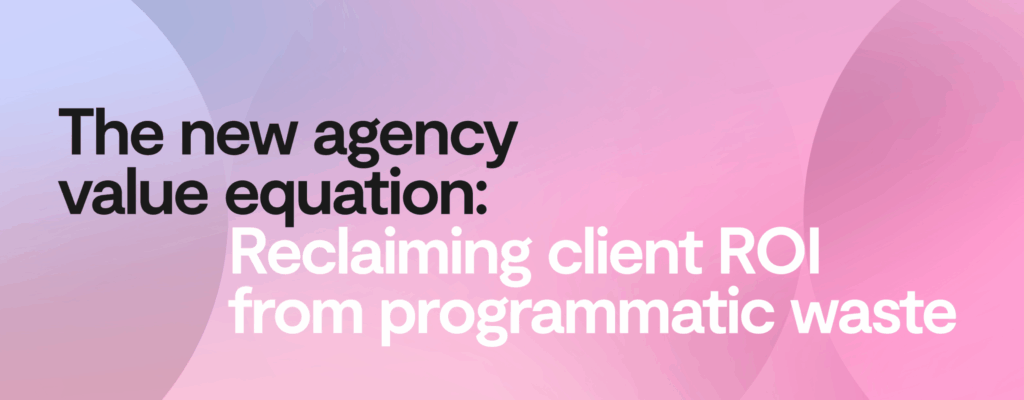- Blog
- First-party data
- Publishers
Why first-party data solves mobile privacy challenges for app publishers
Snap, Facebook, Twitter and YouTube are set to lose nearly $10bn in revenue due to Apple’s App Tracking Transparency (ATT) framework, which requires app owners to ask for explicit consent from users to track them across apps and websites. Without this consent app owners will have limited user data to effectively determine their intent and identify the behaviors required to tailor ads. As advertisers and publishers adapt to this significant change in mobile privacy, there are a few ways to address these challenges using privacy-compliant first-party data. However, first, let me provide the context as to why app publishers —…

Snap, Facebook, Twitter and YouTube are set to lose nearly $10bn in revenue due to Apple’s App Tracking Transparency (ATT) framework, which requires app owners to ask for explicit consent from users to track them across apps and websites. Without this consent app owners will have limited user data to effectively determine their intent and identify the behaviors required to tailor ads.
As advertisers and publishers adapt to this significant change in mobile privacy, there are a few ways to address these challenges using privacy-compliant first-party data. However, first, let me provide the context as to why app publishers — those who provide the capability and inventory that allows advertisers to run ads in their apps or on mobile sites — need to switch their long-term focus.
Mobile iOS changes are altering the landscape
In the past, apps could use Apple’s ID for Advertising (IDFA) to enable cross-app tracking to collect user data and determine the personalized ad to be served. Today, apps must obtain the user’s opt-in consent first.
Although Apple has been the most notable player leading changes to consumer privacy, Google is following suit and announced in June 2021 that its “Opt Out of Ads Personalization” setting on Android would begin to restrict developer access to the Google Advertising ID (GAID) when activated on Android 12 devices.
These privacy changes are similar to restrictions of third-party cookies in browsers, with the main difference being that consumers have much greater control within apps to prevent tracking. It means that app publishers will need to act now to mitigate risks to their businesses.
How can app publishers adapt to privacy changes?
The value of app publisher audiences is expected to decline without access to granular data. At Permutive, we saw this trend when Apple and Mozilla blocked third-party cookies with some publishers experiencing a 50% decline in cost per mile (CPM) on Safari alone. And now, history is repeating itself in the mobile environment – although it hasn’t been long enough since ATT’s rollout to have conclusive evidence, anecdotally, we are hearing that it’s having the same impact on CPMs on iOS.
But like with any disruption in the ad ecosystem, there are benefits to being at the center of innovation.
First-party data can offer valuable insights
Publishers have a wealth of first-party data that provides insight into rich behavioral data that advertisers seek across various industries, i.e. automotive, fashion, and real estate, that makes publisher solutions even more valuable and attractive.
However, app publishers need to ensure any technology they use has the right capabilities. Read this piece in AdExchanger for more insight into how app publishers should adapt using first-party data.
There is no denying that the shift from desktop to mobile usage is on the rise and will continue to climb. In Q1 of 2021, consumer usage of mobile devices rose by 24.5%, and more than 50% of users consume web content on mobile compared to desktop. It means the shift to targeting using first-party behavioral data on mobile is essential now more than ever.
You may be interested in
From scale to accountability: The new agency value equation
Learn MoreThe curation revolution: Rebuilding trust and transparency in programmatic
Learn MoreKeep going, there's more to uncover.
From scale to accountability: The new agency value equation
Discover how leading agencies are rebuilding efficiency and accountability in programmatic media. Learn the 3-step blueprint to reclaim ROI, reduce waste, and deliver verifiable performance through data-enriched PMPs.
The curation revolution: Rebuilding trust and transparency in programmatic
Discover how leading agencies are rebuilding efficiency and accountability in programmatic media. Learn the 3-step blueprint to reclaim ROI, reduce waste, and deliver verifiable performance through data-enriched PMPs.
The performance paradox: Why programmatic efficiency is broken
Discover how leading agencies are rebuilding efficiency and accountability in programmatic media. Learn the 3-step blueprint to reclaim ROI, reduce waste, and deliver verifiable performance through data-enriched PMPs.
The new agency value equation: Reclaiming client ROI from programmatic waste
Discover how leading agencies are rebuilding efficiency and accountability in programmatic media. Learn the 3-step blueprint to reclaim ROI, reduce waste, and deliver verifiable performance through data-enriched PMPs.
Curation as a revenue diversification strategy: Lessons from The Arena Group
The Arena Group is finding new ways to take control of its data and revenue. Discover their powerful new approach centered on curation.
How Acxiom and Fundamental Group are solving for the Outcomes Era
Acxiom’s Ruowen Liscio and Fundamental Group’s Angus Maclaine discuss solutions for the Outcomes Era in advertising. Discover how predictive targeting, curation, and AI are delivering results in a privacy-first world.





